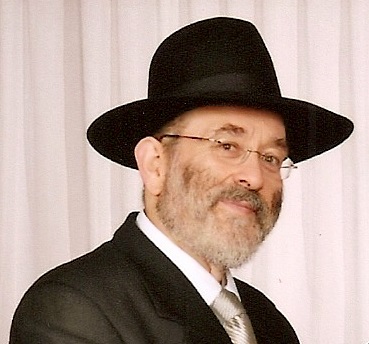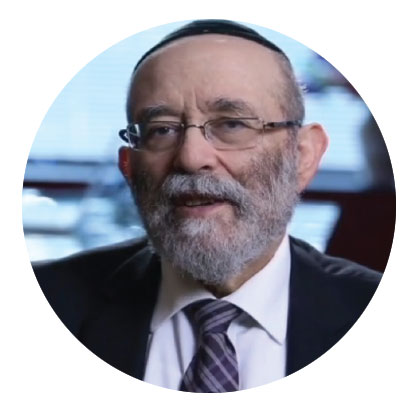The Conversation You Need to Have


T here’s no denying that talking about death is unpleasant. We know that it happens to us all yet confronting our own mortality is more than just uncomfortable.
Emphasizing this point the Chofetz Chaim has written that we tend to think of those who have passed on as members of a “society” that we personally have not signed up for. True people die but they are “those people who die.” David Hamelech expresses this in Tehillim when he says “Va’ani amarti b’shalvi bal emot l’olam — I said in my serenity I will never falter.” Nevertheless the reality is that we all pass on: “The days of our years are 70 and if with strength 80 years.”
Much as the baalei mussar urge us to remember the yom hamisah in order to prepare ourselves spiritually it is incumbent upon us to prepare for that inevitable day in a practical sense as well.
Many people — especially young people — think that buying life insurance is all they need to do to prepare. This myth is supported by an underlying notion that preparing for end-of-life issues creates an ayin hara that might chas v’shalom hasten our demise. The reality is that Chazal urge us to prepare a kever well before our petirah (see Vayikra Rabbah 5:5).
Preparation comes in many forms. And those forms often come with many forms to fill out which is why I often say that illness and death are two of the most unpopular topics we ever deal with and filling out forms is a close third. To expect people to fill out forms addressing possible illness and death is a near-impossible demand. These forms are indispensable however. They can literally save your life in the event of serious illness or accident.
Other preparations can help your family through a time of crisis and possibly have eternal consequences. People who fail to plan properly may not suffer any overt consequences but I field hundreds of SOS calls each year that could have been prevented with proper planning.
As uncomfortable as this topic is every person should create a plan leave instructions and process all necessary documents for each of the following possibilities:
Healthcare Proxy
When a family member suddenly falls ill and is incapable of making decisions a family is thrown into turmoil. Why should a family have doubts about whom should make decisions as to the course of healthcare they take? When loved ones leave clear instructions and documentation of their preferences it eases the minds and hearts of a family at a time of crisis.
Awareness and preparation are not only for the elderly. A living will is a document that appoints an individual to be your healthcare proxy — i.e. a person with the power to make health decisions for you in the event you are unable to make them. The Wall Street Journal in a front-page article urged every 18-year-old to execute one.
What happens if there is no healthcare proxy? The answer depends on the state. Some states have laws that allow one’s next of kin to make healthcare decisions but most states do not. That means that the final decisions fall to the hospitals and doctors. Nobody even parents will have a final say in their family member’s care.
Even in states that do allow a hierarchy of family members to make decisions what happens when those with decision-making power (children siblings or nephews and nieces) do not all agree on the best course of action?
It is vital that the person you appoint to make medical decisions on your behalf is someone you trust to carry out your wishes lives nearby and has the time the willingness and the ability to take on this responsibility. A spouse may often be the first proxy then a child or sibling or a nephew niece or friend. Ideally your proxy should have some medical knowledge and should be on a similar level of Torah observance to you. Additionally in a Halachic Living Will you also choose a rav who is knowledgeable in the relevant halachos — your shul rav or a rav close to your family — who can be called upon to rule on end-of-life sh’eilos that may arise.
The person(s) chosen should give their permission to be designated as a proxy or as a halachic guide or posek and should know what your wishes are within the parameters of halachah. A card containing the contact information of your proxy and rav which attaches to your license in a special sleeve is available free of charge at www.nasck.org or by calling 718-847-6280.
When you are young and vibrant the need for a Halachic Living Will may seem far-fetched and we certainly hope we will never need one. But the few minutes it takes to fill out may save your life and provide invaluable direction and peace of mind to your family.
Burial
On the difficult day a beloved family member passes away why should the family have the additional burden of choosing the place of burial? When a family makes such a decision hastily they will often second-guess their arrangement for years. And that’s assuming the family comes to a clear consensus in the first place.
I recently received a sobering e-mail from a woman whose father passed away years ago but whose death involved unnecessary hardships that still cause the family pain. To paraphrase:
My father suddenly became seriously ill and my family feared that this was his final illness. He had always refused to discuss anything regarding his petirah but this time it was critical. I as the oldest daughter made one attempt to address this shortly before he was niftar as I felt it had to be discussed. Speaking gently I attempted to bring up burial plans. I was stopped in my tracks however. “I don’t want to discuss this ” my father flatly stated.
“But Tatty…”
“I don’t want to discuss this” he repeated firmly. I dropped the issue.
When he was subsequently niftar we had no idea where he wanted to be buried. Although his petirah was clearly foreseen our family was thrown into disarray. In addition to the pain of losing a loved one we now had to decide whether to bury him locally or in Eretz Yisrael. My zeide was buried in Eretz Yisrael but my father still had young children at home — how would they visit the kever if we buried him there?
Ultimately we decided to bury him locally. But the additional agmas nefesh of having to make a hasty decision about where to bury him was easily avoidable. If only he would have spent just a little time giving us some direction when he still could have.
This communication is typical of many we deal with and it highlights the need to prepare oneself and one’s family for these difficult eventualities.
Estate Planning and Wills
Another common issue we tend to avoid is that of estate planning and last wills and testaments. Halachic wills are legal documents that instruct one’s heirs how to properly divide the estate in accordance with Torah and state law. If one does not leave a halachic will the family might err in the way they divide it in a best-case scenario; in many cases it can become an explosive drawn-out battle. The Torah’s laws of yerushah and the secular laws of inheritance are often at odds. Without a halachic will a family may end up violating Torah law experiencing needless rifts and fights and making difficult compromises that should have been avoidable. The conflict malice heartache turmoil and tainos that accompany these inheritance issues do not need to happen at all. But these things do happen in our community — too often.
Caring for Parents
Preparation of another kind involves understanding the nuances of kibbud av v’eim. It is physically and emotionally draining to be a member of the “sandwich generation” but it is a great zechus to care for those who cared for you. Often parents themselves don’t want to be a burden on their children. When this is necessary however Torah hashkafah demands that children embrace that responsibility.
Clearly adult children are responsible for their parents above all others and are an indispensable asset in ensuring their parents’ comfort. Frequent visits phone calls and providing transportation to appointments along with whatever else is needed should be the norm not the exception. Sadly all too often parents are too proud or apprehensive to ask for help and children forget or just assume their parents are okay. Parents usually want their children’s company and conversation. Never assume that your parents don’t need you — they crave your companionship and connection.
Children of elderly parents often have the technological knowhow real-world experience and stamina to help parents navigate the multiple golden-year decisions. With proper sensitivity they can guide their parents in evaluating and choosing a senior home or a stay-at-home aide in weighing the pros and cons of local burial versus burial in Eretz Yisrael and in interpreting the confusing forms directives and documents that must be processed to prepare for these eventualities. Of course help given to parents has to be balanced with the parents’ real need to maintain their independence and feel useful and in control.
Preparation for end-of-life is as important as preparing for any milestone event. If we make these preparations responsibly we can be confident that when the time comes our family will be very grateful that we did.
Rabbi Elchonon Zohn is one of the foremost experts on the work of the Chevra Kadisha and on Jewish funeral and burial practices.
Rabbi Zohn is the founder and President of the National Association of Chevra Kadisha (“NASCK”) an organization that provides support and networking for Chevros Kadisha and creates programs and educational resources promoting traditional burial for all Jews regardless of their level of observance. For the last 35 years he has served the Jewish community of Queens and Long Island as the Director of the Chevra Kadisha of the Vaad Harabonim of Queens.
Rabbi Zohn serves as a Rabbinic advisor to the Hebrew Free Burial Association of NY for the last 30 years and as Chairman of the Burial and Cemetery Preservation Committee – Jewish Community Relations Council of New York since 1990.
Rabbi Zohn travels around North America lecturing and mentoring rabbinical groups Chevra Kadisha organizations Jewish Funeral Directors and cemetery operators on appropriate conduct at the time of death dealing with grief health issues traditional Jewish burial practice and effective communication.
(Originally featured in Mishpacha, Issue 642)
Oops! We could not locate your form.













